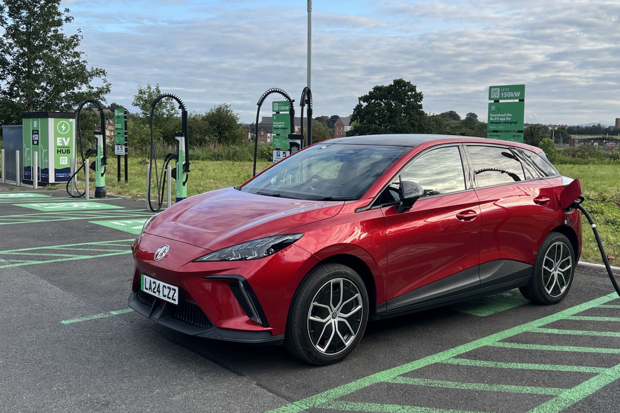HonestJohn.co.uk urges Government to cut VAT on roadside EV charging

Honestjohn.co.uk is calling on the government to cut the rate of VAT on roadside electric vehicle charging from 20% to 5%, to bring it in line with household energy – and make charging an EV as cheap as a diesel car.
We are is also calling on suppliers to reduce their costs after finding that motorway chargers cost an average of 10% more than roadside chargers on trunk roads.
Making roadside charging more affordable could help deliver a ‘universal tipping point’ which would boost the appeal of EVs even for those who cannot charge at home.
Our readers have told us that their biggest concerns around buying an electric car centre on not being able to charge one at home, range anxiety and the cost of charging. So we set out to explore the reality of these concerns.
Our team at HonestJohn.co.uk drove a 2024 MG4 Extended Range from Cambridgeshire to the Scottish Highlands and back using only public chargers – a marathon round trip of 1285 miles.
The cost was compared with a diesel-powered Mercedes-Benz E 220 d, which averaged 48.8mpg over the same route.
The total cost for charging the MG4 was £203.03, compared to £172.48 in diesel for the Mercedes-Benz.
However, if roadside charging was subject to the same 5% VAT rate as household energy, the MG4’s electricity cost would have dropped to £172.57 – almost identical to the diesel car.
For a third of drivers who don’t have access to home charging, an electric car has never appealed, but we’re now at the tipping point where an EV could make sense even if you can’t charge at home.
With the number of fast chargers around, it seems that – aside from the initial purchase – the cost of charging is the only real issue and it’s getting close to parity with fuel-efficient diesel cars, as our study shows.
We're calling on the government to reduce VAT on public charging to the same 5% it is on domestic electricity, thus removing the one barrier to entry for those who need to rely on public charging stations.
That would strongly reinforce the argument for those considering buying an EV.

